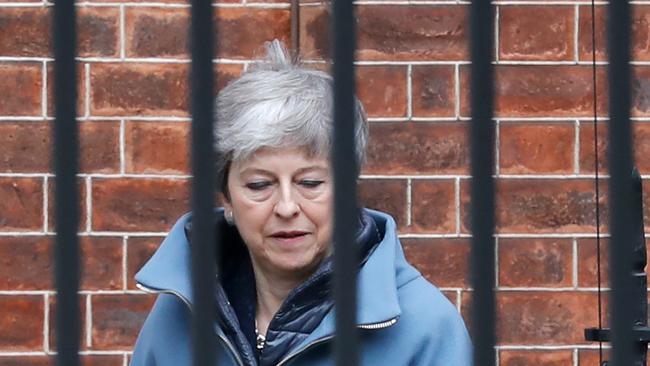
Whatever outcome arises from the chaos in the British parliament a vast number of corporations around the world have already decided that the UK is not the place to spearhead their European activities.
Australia has been having free trade negotiations with the EU and, although it will be a matter for the next government, we are likely to reject our heritage and negotiate a deal first with Europe and then with the UK. The EU market is too big.
One of the close students of the future of Europe and the UK after the chaos, the director of the CEO forum Gartner, Gabriele Suder, tells me that Australia has about 1500 UK-based companies using Britain as a springboard into the EU, due to close linguistic, institutional and historic linkages.
The UK has provided them with business access to the EU’s 500 million-plus consumers across the continent, minimising red tape, offering harmonised standards, product testing, and unique conditions across a single bloc of 28 countries for various market stages and its participation in the global value chains.
While the politicians debate many global and Australian corporations, as well as small and medium-sized enterprises and suppliers, have concluded that the UK will be the wrong place to be based and have been preparing for Brexit (many for a “hard Brexit”) for some time.
According to Suder, multinationals with operations in the UK are highly exposed to increasing costs, rising backlogs and uncertainties about whether they can move goods across borders. British firms, and those dependent on the British market are relocating the non-essential assets offshore in mainland Europe as much as possible.
Nissan has announced it will not build its new sports utility vehicles in England, Honda is closing its UK operations, while Credit Suisse, Goldman Sachs, JPMorgan, Morgan Stanley, and Citigroup and HSBC have moved ownership of European subsidiaries and/or assets from London to remaining EU countries. Bloomberg and Panasonic are moving to Amsterdam. Airbus is likely to pull out of the United Kingdom and replace its UK suppliers. Companies such as the British airline Flybmi are collapsing.
The EU has been Australia’s largest economic partner for more than 25 years and traditionally the EU has been the largest investor in Australia. The EU is Australia’s third-largest merchandise trading partner, its second-largest source of imports (17 per cent of total Australian imports) and fifth-largest market for exports.
Meanwhile in the UK a Bank of England survey found that about 80 per cent of UK businesses feel they are somewhat prepared for a no-deal Brexit — up from 50 per cent in January.
Significantly, even those that felt “ready”, still expected UK output, employment and investment over the next 12 months to be significantly weaker under a “no-deal, no-transition” Brexit.
It won’t be just Australian and international companies that will change strategies. UK companies have to do likewise.





The delay in Brexit gives Australian and global companies extra time to plan their exit from the UK. The trade ties that started in 1788 are going to be radically altered.